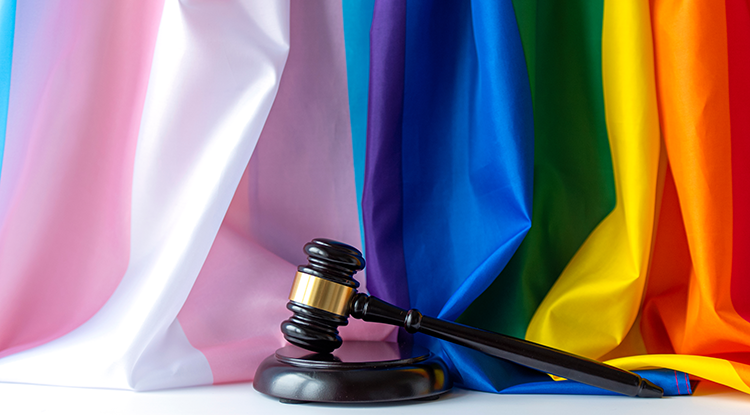Supreme Court declines to consider challenge to conversion-therapy ban; 3 justices would have heard case

The U.S. Supreme Court on Monday refused to consider a challenge to ban in Washington on conversion therapy for LGBTQ minors, prompting dissents from three justices. Image from Shutterstock.
The U.S. Supreme Court on Monday refused to consider a challenge to ban in Washington on conversion therapy for LGBTQ minors, prompting dissents from three justices.
Justices Brett Kavanaugh, Clarence Thomas and Samuel Alito would have heard the case banning the therapy, which seeks to change a person’s sexual orientation or gender identity to reflect their sex at birth. Thomas and Alito explained why in separate dissents.
At issue, Thomas said in his dissent, was whether “Washington can censor counselors who help minors accept their biological sex. Because this question has divided the courts of appeals and strikes at the heart of the First Amendment, I would grant review.”
The 9th U.S. Circuit Court of Appeals at San Francisco created a circuit split when it ruled for the state in September 2022.
“States do not lose the power to regulate the safety of medical treatments performed under the authority of a state license merely because those treatments are implemented through speech rather than through scalpel,” the 9th Circuit had ruled.
The law was challenged by Brian Tingley, a Christian marriage and family counselor, who wants to help minors with gender dysphoria “become comfortable with their biological sex,” Thomas wrote. Tingley had alleged that the ban on conversion therapy “violates the First Amendment by restricting his speech based on its viewpoint and content,” according to Thomas.
Under the Washington law, Thomas said, “licensed counselors can speak with minors about gender dysphoria, but only if they convey the state-approved message of encouraging minors to explore their gender identities. Expressing any other message is forbidden—even if the counselor’s clients ask for help to accept their biological sex. That is viewpoint-based and content-based discrimination in its purest form.”
Twenty states and Washington, D.C., have enacted laws banning conversion therapy, Alito wrote in his dissent.
“It is beyond dispute that these laws restrict speech, and all restrictions on speech merit careful scrutiny,” Alito wrote.
The case is Tingley v. Ferguson.
See also:
“ABA develops guide for drafting laws to ban controversial conversion therapy for LGBTQ minors”
Write a letter to the editor, share a story tip or update, or report an error.



